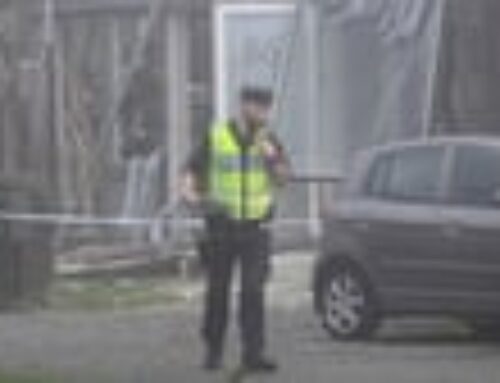Gloria Mertoli’s shift is over when the first light of dawn shines on the goalposts of a rugby pitch in the Librino district of Catania, a stronghold of the Cosa Nostra, the feared Sicilian mafia. Since mobsters torched the clubhouse and team bus, she and other players on the women’s rugby team, Briganti Librino RUFC, have taken turns to stay after evening practice and guard the area overnight.
Since the club started working to take children – easy targets for mafia recruitment – off the streets of Librino, the clans have tried to put it out of business. “Librino is a complex neighbourhood,” Piero Mancuso, one of the founders of the Briganti, told the Observer. “We knew it wouldn’t be easy to work here. These criminal attacks risked destroying everything we had achieved in recent years. But if I look at what we have done so far, I can say that these attacks have made us stronger.”
The story of the small Briganti team from Catania has made news around the world and received expressions of solidarity from England’s national rugby coach, Eddie Jones, as well as from former England captain Bill Beaumont. Even World Rugby has expressed its support for the team. Last year, the amateur rugby team from Bolton, with a 150-year heritage, forged a partnership with the Sicilian team.
“For the people of Librino, rugby offers an alternative to a potential life of crime on the streets,” said the Bolton chairman, Mark Brocklehurst, in a note last year. “If we can help Briganti by offering a glimmer of hope, then amazing things can happen. What better motivator for Bolton to get involved?”
The Briganti, which runs several junior and senior teams, as well as women’s teams across multiple age groups, was established in Librino in 2006, with the goal of doing more than simply playing rugby.
“We built a clubhouse with a small library, a café, and a kitchen,’’ says Mancuso. “We offered after-school activities for the least advantaged kids in the neighbourhood, and we started teaching them the noble sport of rugby, which is based on a respect for adversaries and rules.”
Librino, with a population of 70,000, is not an average district. School dropout rates reach among the highest levels in Europe, and the mafia has used the area as a hub for drug dealing and stockpiling, which are controlled by the Cursoti Milanesi and Cappello clans of Cosa Nostra. Here, crime is seen as a path to financial success, as well as respect within the community.
Like other depressed areas in southern Italy, few institutions exist to offer a credible alternative to children in these neighbourhoods. And the youth are a prime target for mafia recruitment. In 2017, a police investigation revealed the use of a six-year-old boy as a drug dealer. In such a context, educating kids in legality and respect for others is met with distrust by the mobsters.
At midnight on 11 January 2018, a fire broke out in the Briganti clubhouse. Books, footballs, the cafe, computers, jerseys and trophies were all burnt beyond recognition.
“At least 10 years of memories went up in smoke,’’ says Mancuso. “It was devastating.’’
The clubhouse was rebuilt within months, thanks to private donations, but thefts and attacks continued. Last April, someone broke down the club’s iron door and stole equipment. Weeks later, on 16 March 2021, the team’s bus was set on fire.
“My whole life I’ve heard people talk about the mafia, but when you have it right in your face it’s a completely different story,” says Mertoli, 22, who is the captain of the women’s rugby team. “When they torched our bus, it was as if they had set my own house on fire. You find yourself in a difficult situation because you don’t know how to handle it. You don’t know if you should go to the police. You really have no idea how to react.”
Since that day, Mertoli and her teammates take turns at night watching over the locker rooms, the new clubhouse and the library.
“We’re there all night,” Mertoli says. “We order food and pass the time playing Risk or Monopoly. If we hear a noise, we grab our clubs.”
Claudio Fava, president of Sicily’s anti-mafia commission and son of the late journalist Giuseppe, killed in Catania by the mafia in 1984, says that “anyone who offers a different life to kids who are born and raised in these mafia strongholds are ball breakers for the mafia bosses”.
Fava compares the terrorist acts against the Briganti to the assassination of Father Pino Puglisi in Palermo, a priest shot dead by mafia hitmen in 1993 after he challenged the organisation’s control over one of the city’s toughest neighbourhoods. The parish priest had fought for the building of a football pitch to get young kids off the streets.
“In these neighbourhoods, offering a way out for these kids, through school or sport, is an affront to the bosses,” Fava added.
But life, like rugby, is a game of resilience, and anything can change the outcome of the match, up to the last minute. Thanks to international support and donations, the Briganti have managed to christen their new rugby pitch, which was officially inaugurated last Friday.
“We have risen from the ashes of the fire that these people started,” says Mancuso.
“And if they come back to bother us, we’ll be here,” adds Mertoli. “And like in a rugby match, we will not move back an inch. We will continue to defend ourselves, because this, this is our home.’’





